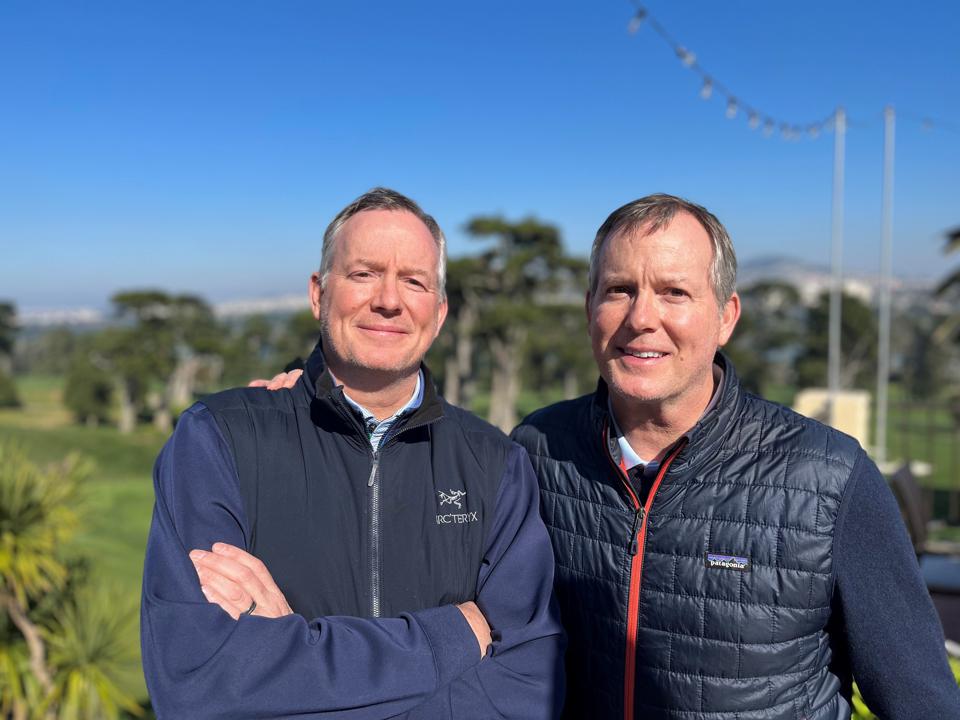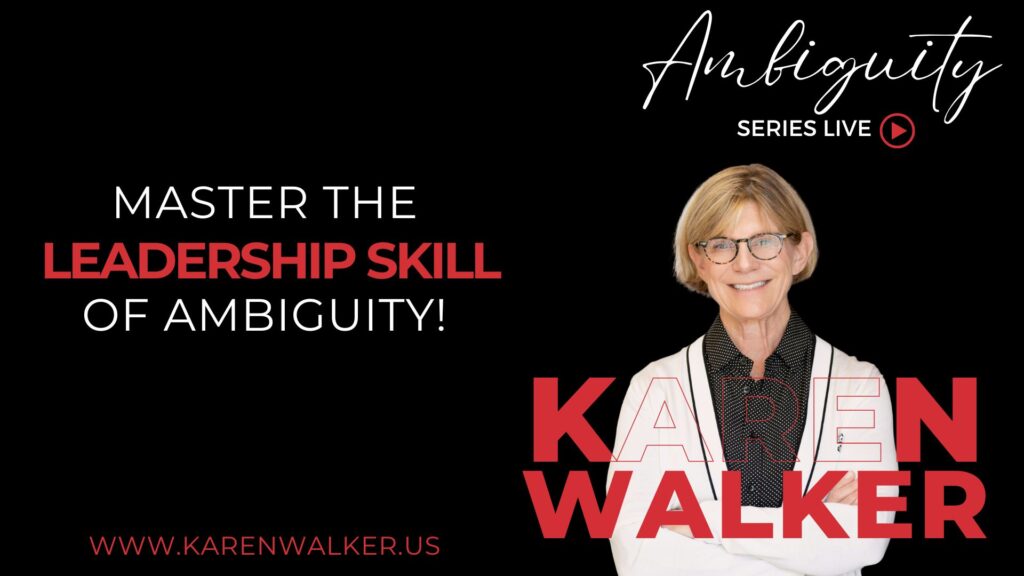
Tom and Darr Aley are twin brothers with a stellar track record in founding and managing successful companies such as Generate, which was acquired by Dow Jones in 2009, and were early investors in companies such as Netprospex, which was acquired by D&B in 2016.
Aidentified is their latest venture, founded to solve a problem they identified early in their careers: how to quickly grow meaningful business connections.
This interview has been edited and condensed for clarity.
Karen Walker: As twin brothers, you’ve worked together at a number of successful organizations. Do you also work separately or are you always a package deal?
Tom Aley: Darr and I agreed early in our careers that we would always split whatever stock we had from any company that we worked for. If one of us was working for a big company, the other one took a risk with a smaller company. If the smaller company didn’t work out, we could help elevate the other to the next level.
For example, when I came out of Northeastern business school, Darr was working for Ziff Davis. I said, “There’s a new division of Ziff Davis called ZD net. Could you help me up?” So we made a call and I went in for the interview. I got the job and I asked my boss at the time, Jim Savage, “How many people did you interview for this job and how did you pick me?
He said, “I interviewed 47 people. I picked you because your brother works here and apparently he’s pretty good.” It’s been that sort of ebb and flow. From there, Darr went to work for Elon Musk at Elon’s first company, so he took the chance while I stayed at Ziff Davis.
Darr Aley: We’ve been through four or five chapters of hyper-growth with companies including Zip2, Avatar and Shiva, which may have been John Doerr’s first funding at Kleiner Perkins. I also worked at Amazon – joining when there were 7,000 employees and leaving when there were 50,000. At the time, I didn’t know how lucky I was having both Elon Musk and Jeff Bezos as great mentors.
We also learned from our father, a career guy who became an entrepreneur late in life.late. He said “Make your mistakes at the big companies before you start your own.” It was a great suggestion.
I think the biggest lesson that both Tom and I gained was from Jeff saying to me, when I was running M&A, “You are going to be my problem. I am very careful about who we select for the team and you are the risk because you are buying companies. There has to be a cultural fit, there has to be an intelligent management team. You’re not going to get that with all the companies that you buy because you have other reasons why you want to buy them.” Cultural fit was a really important lesson to us. The other lesson was an imperative – always hire people smarter than you.
At the point when Tom was at Reed Elseveir and I was at Amazon, we decided we had enough chops to give starting our own company a shot.
Walker: So many great stories here! Working together as a family, how do you deal with conflict? Did you just carve out individual swim lanes, or do you have a process for dealing with differences?
T. Aley: My wife actually complains to me that I deal with conflict so well with my brother, I should be able to deal with it better at home. Actually, I think it’s that we just get each other. If we are angry about something, there’s no anxiety about it.
D. Aley: We also understand our swim lanes. Both of our backgrounds started in sales, then evolved to marketing business development and corporate development. Tom migrated more toward venture and growth scale operations and I mostly remained corporate. Part of our formula is Tom taking the leadership position and raising money, and I focus more on sales and marketing.
We don’t have a lot of conflict but when we do, we try to recognize “Oh, this is going to be an issue. Is there anything in our bag that we can look back on where we turned left when we should have turned right?”
Walker: Smart. You get ahead of it before it becomes a major issue. Where and how did this idea for a relationship intelligence company come about?
T. Aley: As sales reps early in our careers, we realized how much time we were wasting trying to uncover meaningful connections. The idea itself started with our company, Generate, which was basically version one of this product, back in 2004. We noticed that we were collecting information by going to someone’s “about us” section and grabbing unstructured bios. We extracted that information and put it into a relationship database. It was clear that the database was just a giant Excel spreadsheet. We quickly saw the possibilities in identifying implied relationships. For example, if we saw that Karen worked at Ziff Davis and Tom worked at Ziff Davis, they may know each other.
Three years ago, we asked ourselves, “What hasn’t been done yet that AI could solve?” Our perspective – from Darr, with his B2C householding experience from Amazon, and from my B2B background – was “Why haven’t those two worlds collided?”
If you push those two worlds together, the Venn diagram is a very powerful proposition that no one has ever really been able to leverage. Then we asked ourselves how this information could enhance relationships.
D. Aley: Our question is, “How do I connect to an opportunity through my clients? Through my company, my team, my community?” And because we gather data from both worlds, we’re able to make the next step and show the interconnectedness – to identify relationships that you didn’t know you had. That’s really the punch line of what we’re building.
We’ve spent over four years working to perfect the data science and it works tremendously well. What we are proud of is the coalescing of the relationship cloud.
Walker: Privacy and security are big concerns. How are you handling that?
D. Aley: Some of our biggest customers have been banks, wealth managers and insurance companies. We reached out the them first and said, “What’s the most important thing to you when it comes to privacy and the protection of your data?”
A primary focus was on getting our SOC 2 compliance certification, making sure PII was at the top of our list and being CCPA compliant.
T. Daley: There’s a woman, Juliana Spofford, who’s been with us on the journey. We hired her as our Corporate Counsel at Generate because even in 2004 security and privacy were an issue. She went on to Dunn and Bradstreet, where she was responsible for global privacy governance and compliance on a multi-national level, including privacy oversight of and response to cybersecurity incidents. She’s our Chief Privacy Officer. She wrote all of our rules from the beginning.
Walker: Part of what I love is that you’ve solved this original problem that you had in your lives when you were inside sales guys. What’s next?
T. Daley: Our product has caught up to our story! B2B enterprise is going to be a big part of the 2022 plan. We intend to raise capital to build out our sales and marketing, but the platform is ready. We’re excited to introduce this relationship cloud to the masses. It’s going to be exciting because it is unique. It’s a really special way for people to leverage their current address books – we allow you to bring your LinkedIn connections, your address books, etc. and we provide a central repository for your connections. We start with the 110 billion connections that we found, and you add in, if you want to, your other connections.
Our clients include Merrill Lynch, Bessemer Trust, Compass, Chime, and Stanford University. We’re looking forward to expanding. There are so many uses for this information.
D. Aley: We over invest in our companies and our management teams. More than half of our employees have come from the last two companies that we built. There’s a steadiness to the trajectory that we all anticipate.

